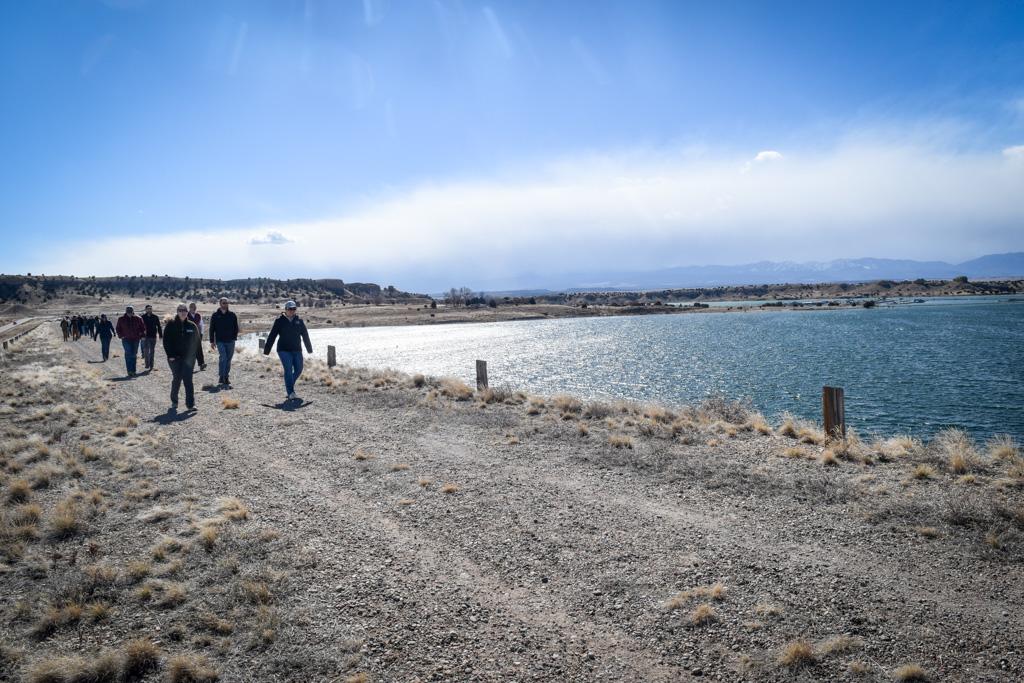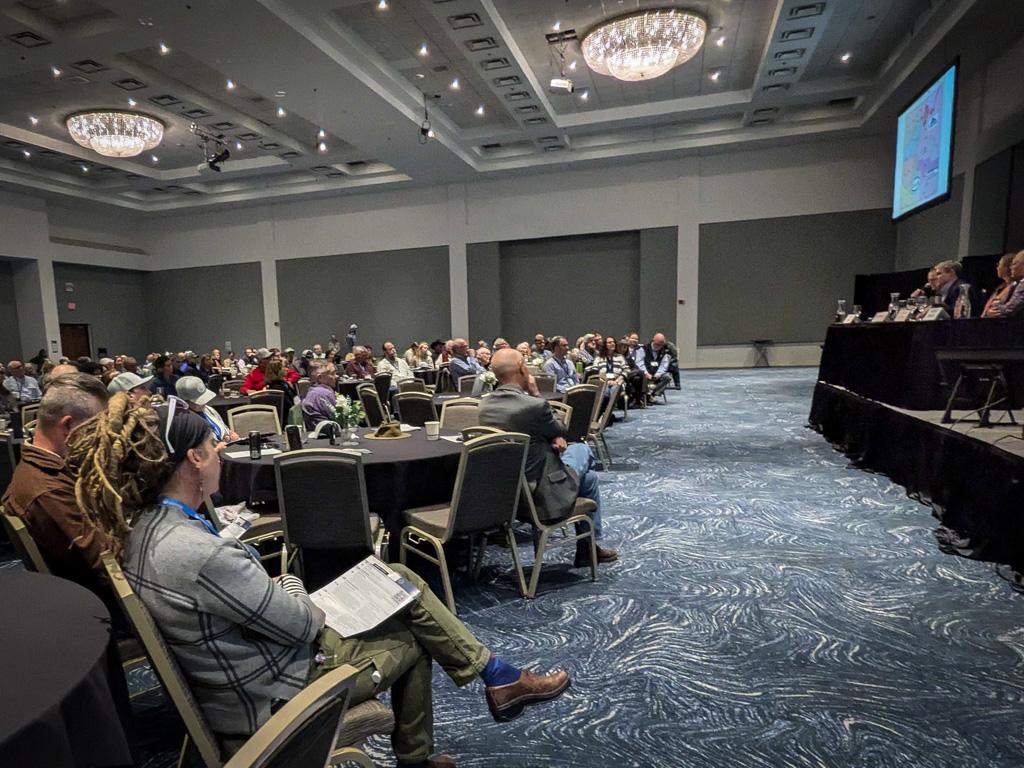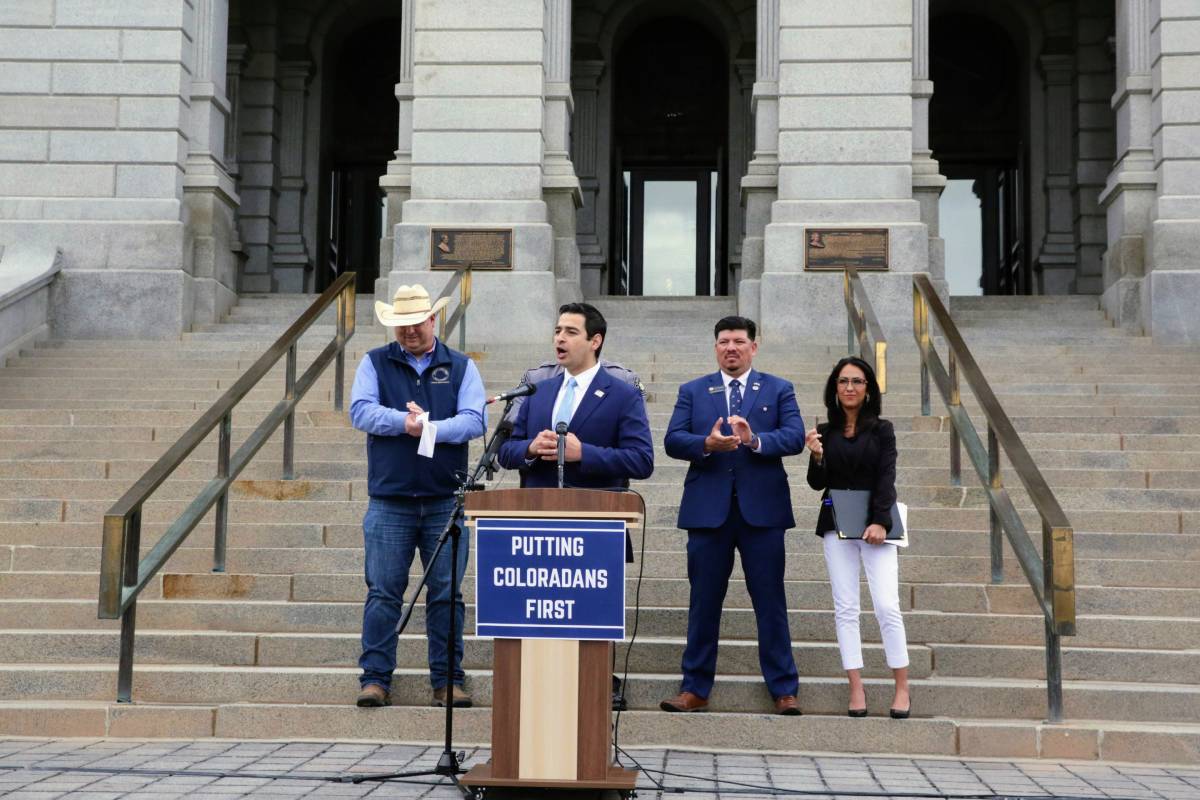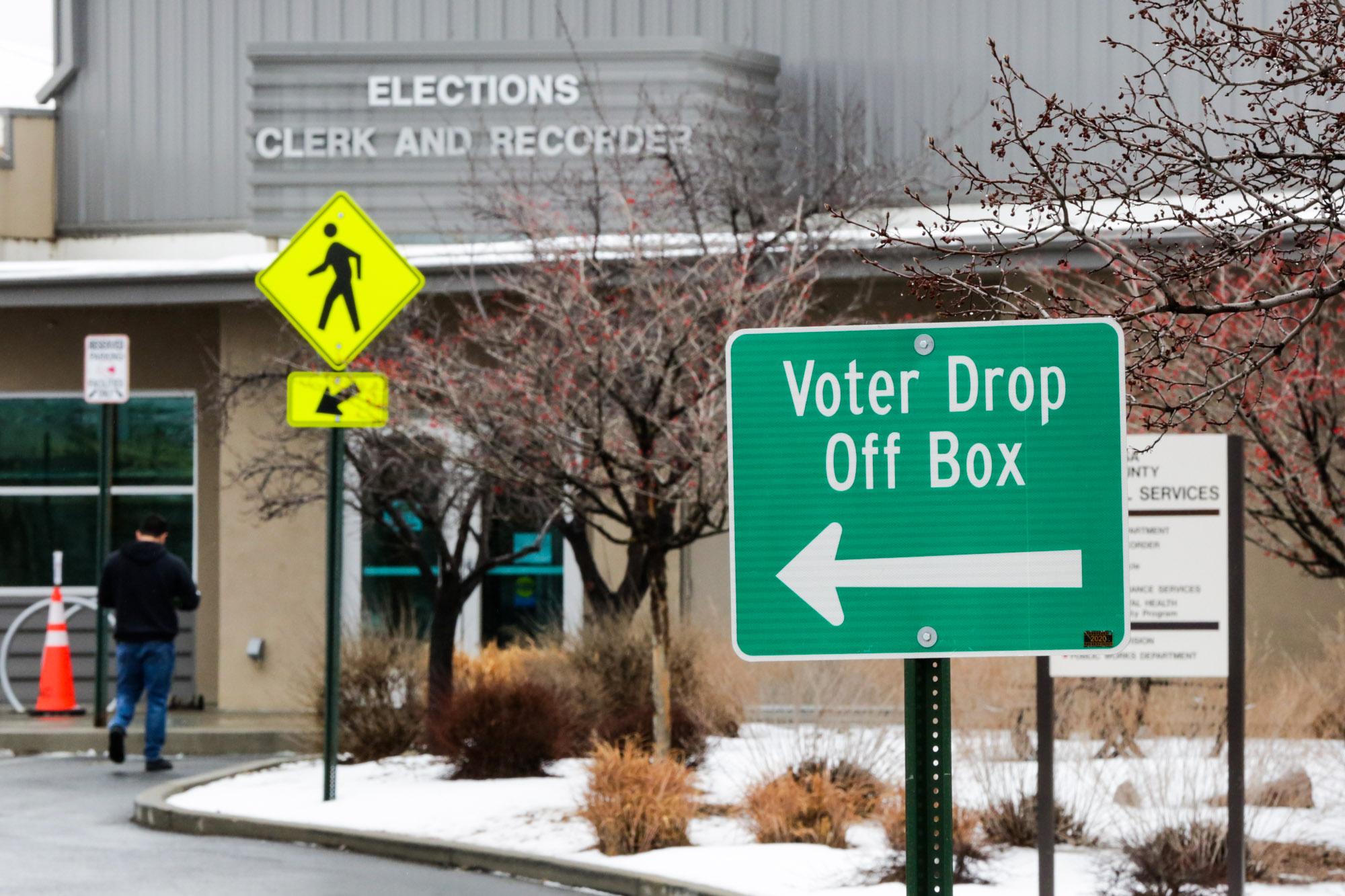
Water in the Arkansas River Basin is in high demand. Farmers, rafters, and fishermen use it. So do cities and towns far from the river, where hundreds of thousands of people live and work. Like elsewhere in the West, the region’s water resources are stretched by drought and growth, along with downstream obligations to Kansas.
The 30th annual Arkansas River Basin Water Forum in Pueblo recently brought together water managers and users from all over Colorado to talk about the often contentious nature of water in the basin and around the state and to look for possible solutions to longstanding, reoccurring and often vexing questions about the precious resource.
A cross-basin conversation about strategies to preserve water
Water experts and advocates from the San Luis Valley, the Arkansas River Basin and Northern Colorado explored water preservation strategies during a panel discussion. All three areas feel the stress of the state's urban growth. Some of the state's urban centers had representatives at the forum, too, like Colorado Springs Utilities and Aurora Water.
As cities grow along the Front Range, water is often transferred away from agricultural lands to serve the urban populations. This practice, known as buy and dry, often leaves farms without irrigation water, effectively ending their productivity and usually resulting in acres of barren land.
Jack Goble is actively trying to protect agricultural water. He leads the Lower Arkansas ValleyWater Conservancy District, which represents counties stretching from Pueblo east to Prowers.
His efforts include speaking out against new land annexations under consideration by the City of Colorado Springs, like the recently approved Karman Line Annexation near Schriever Space Force Base.
“I think the best we can do is just keep showing up and keep trying to have those conversations and sometimes they'll be pretty difficult,” he said at the panel discussion. “I'm confident if we just keep swinging (at the long-standing and ongoing challenges) with human ingenuity and a willingness to commit to come together that we'll have a fighting chance.”

Heather Dutton leads the San Luis Valley Water Conservancy Trust, which helps manage well water in parts of five counties covering a million acres in the Rio Grande River Basin.
“Keep showing up,” she said, in agreement with Goble. “We're not trying to say that one community's future is more important than the other, but it's really that together we will either sink or swim.”
"Our futures are linked," she said. “We all are going to have to learn to do more with less,” she said, including both rural and urban communities.
Water isn’t partisan
Chane Polo of the Colorado Water Congress, a statewide advocacy group, said the forum attendees all strive for the health and sustainability of water resources, but are often coming at it from different perspectives.
“We're doing it speaking different dialects of the same language,” she said. “Engineers speak differently than ranchers or farmers… Lawyers speak very differently than conservationists or environmentalists.”
She said that it’s important to listen, understand and translate that language and form partnerships.
“Water is about the people,” she said. “We will be more effective in enacting change if we establish trust among each other…Water is not partisan. So whether you're on one side of the aisle or the other, we all have to work together.”
What does the Colorado River have to do with the Arkansas River?
Keynote speaker Rebecca Mitchell is Colorado’s representative on the Upper Colorado River Commission, an interstate water administrative agency that helps manage allocation of water and compliance with the Colorado River Compact. The compact governs rules and responsibilities among the states and Mexico that benefit from the Colorado River.
She noted that while the Arkansas Basin may be geographically distinct from the Colorado River, it’s now linked through infrastructure like the Pueblo reservoir, along with tunnels, pipelines and ditches. As a result of transbasin movement, there is Colorado River water flowing in the Arkansas River.
“I don't need to tell you all that in Colorado, 80 percent of the precipitation falls on the west side of the divide, while 80 percent of the population lives on the east side,” she said. “We've been moving water across the Continental Divide for over 130 years. Transmountain diversion supports about 5 million people in the Colorado Front Range, including those in the Arkansas Basin.”
Mitchell said water users on the Western Slope, as well as other states in the Upper Colorado River Basin can share their experiences with their eastern neighbors.
“Your water rights do not mean anything if the water's not there, you better figure out in times that are tough who you make a deal with," she said. “When times are tough, that's when communities come together.”
A water court judge’s perspective
The second day’s keynote speaker, Division 2 Water Court Judge Greg Styduhar, echoed the theme of collaboration among water users and managers.
“Although many of you may be aligned, you all have your individual desires, your individual needs,” he said. “That's what makes this particular forum such a great medium for constructively discussing the issues that face our basin.”
A Pueblo County native and former river runner in Chaffee County, Styduhar spoke about the legal history of Colorado water law and how water disputes have been handled over the years. He said nearly every water case in the basin is settled before it actually goes to trial.
He spoke to the theme of this year’s forum, “Still a river of dreams and realities,” which is a reference to the original forum three decades ago.
“Whether you're rafting its rapids, farming its waters, or simply standing along its banks, the Arkansas River remains a testament to the dreams we hold and the realities we must face in safeguarding it for our future,” Styduhar said.
- The Colorado Springs Utilities Board opposes Aurora's recent purchase of water rights in Otero County
- Colorado Springs Utilities plans to share water with Eastern Plains farmers
- Nearly $25 million in federal funding expected to flow into the Upper Rio Grande River Basin to help address drought
- More federal funding is on tap for the billion dollar pipeline slated to bring safe drinking water to Southern Colorado’s plains
- How water in Southern Colorado’s rivers gets divvied up before crossing state lines
- Southern Colorado property owners are starting to receive notices of illegal ponds. Here's why hundreds of them may need to go









